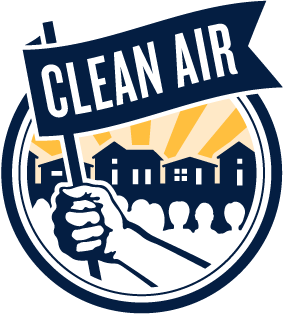Why?
Mutual aid has a long history in movement work, and we see it emerge organically in moments of crisis. Movement examples include the Black Panther’s Free Breakfast For School Children Fund, providing meals to children in the late 1960s, to Black Mama’s Bail Out, an annual fundraising effort coordinated around Mother’s Day, to pay bail funds to release Black mothers and send them home to their children. Outside of coordinated movement efforts, we see mutual aid happen when hurricanes, earthquakes, and tornados hit, and communities band together to share supplies, recreate shelters, and make sure their neighbors’ needs are accounted for.
While Clean Air hasn’t named mutual aid as an organizational value or recognized it as part of our ongoing work in the past, we have practiced it. Out of our over 200 current dues paying members and campaign team leadership, the majority are older, immunocompromised, with limited resources, and at a higher risk of experiencing violence from the police and military as further restrictions and government interventions occur. Throughout our organization’s history, we brought food to each other when one of us is sick or caring for a family member, visited each other in the hospital, and stepped in to provide care for caretakers. As recently as January 2019, when 57 Tesla employees were terminated, we called through membership, requesting gift cards for terminated employees to buy gas and groceries. This care allows us to sustain each other in order to keep organizing and fight for what our communities and people need.
It is abundantly clear that in order to build the world we need, we must start to practice it even more now. Our country’s crumbling infrastructure is unprepared for the coming crisis, and the powerful few, who have been long content to profit off our members’ pain and illness, have no inclination to share resources, in fact they are demanding more of ours. We know that now, more than ever, is the moment to take care of each other.
